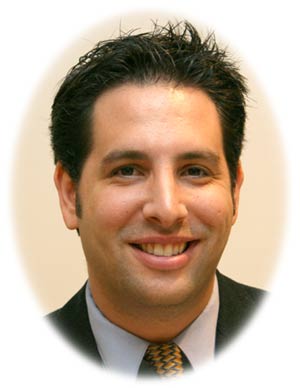|
Choose Your Patients Wisely

by Jordan R. Stewart, DPM
Timonium Foot and Ankle Center
Established July 2006
Tomonium, MD
During residency, it is your goal
to learn and perform as many surgical procedures as possible. For most of us, we generally see the patient one time, at the surgery. If you are fortunate, you will
rotate through a clinic where you treat patients pre and post-operatively. One of the most important lessons you can learn in the clinic setting is to choose your
surgical patients wisely.
I spent my third year training with an orthopedic surgeon who has been practicing medicine for more than 30 years. Over time, he dealt with several surgical
complications and became very skilled at identifying the risk factors that caused the majority of his complications. During this rotation, I learned that cigarette
smoking and mental state are two of the most vital factors to evaluate when selecting surgical candidates.
It is well documented that cigarette smoking causes complications. If you are operating on patients that smoke or have a history of smoking, be very careful. As a
resident, I spent nine long months treating a non-healing surgical incision over the posterior tibial tendon. The patient had a 35 pack year history of cigarette
smoking and had stopped smoking ten months before surgery. The surgical correction was excellent, but the post-operative course was mentally draining on the
patient and on me.
When you evaluate your patients, try to get an idea of their mental state. Are they prone to depression? Do you feel that they have the capacity to follow your
post-operative instructions? Do they miss appointments? Do they have a caretaker to help them? All of these factors need to be considered carefully when choosing
a surgical candidate as they will impact the outcome of the procedure.
When you start practice, you are ready and excited to do surgical cases, and you want to accumulate as many cases as possible to sit for the board certification
exam. Just because a patient wants surgery doesn't mean you have to it. Carefully review the medical history and the above factors and determine if you are
comfortable with the case. If something doesn't feel right, do not do the case. Kindly tell the patient you are concerned about performing the surgery because they
have risk factors that increase the chance of a complication. If the patient is not satisfied with your recommendation, tell them they should seek a second opinion or
switch to another podiatrist. It is your responsibility to assess the risk-benefit ratio and to forgo the case if the patient is at high risk for complications. If they
cannot make changes in their lifestyle or lack the capacity to make these changes and do not have close relatives or friend to help them during the recovery period,
then they are not a surgical candidate.
Surgical complications will occur, but if you trust your instinct and choose your patients wisely and then the chance of developing a complication is likely to be less.

Jordan R. Stewart, DPM
PRESENT New Docs Editor
[email protected]
|
|
Podcasts
from
The Vascular Disease Foundation
|
Exercise and Peripheral Vascular Disease
Listen/Download as .mp3 file
Description:
This episode, hosted by Dr. David Meyerson, focuses on exercise training for patients
with peripheral arterial disease. He is joined in the studio by Dr. Kerry Stewart,
Professor of Medicine at Johns Hopkins, where he is the Director of Clinical and
Research Exercise Physiology. The special guest expert is Dr. Judith Regensteiner,
Professor of Medicine at the University of Colorado Health Sciences Center in Denver,
Colorado, Section of Vascular Medicine, Divisions of General Internal Medicine and
Cardiology. She is also the Director of the Center for Women's Health. Dr. Regensteiner
is among the foremost researchers on the role of exercise training and physical
activity for preventing and treating vascular disease and diabetes.
|
About the host and producer
The VDF Healthcast is hosted by Dr. David Meyerson, and produced by Dr. Kerry Stewart,
who will also participate in the discussions with Dr. Meyerson and guests. Dr. Meyerson is a cardiologist at
Johns Hopkins and a scientific advisor to VDF. Dr. Stewart is a Professor of Medicine at Johns Hopkins and
a member of the VDF Board of Directors.
Read . David Meyerson's bio
Visit the Vascular Disease Foundation website
|
|

